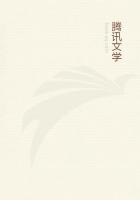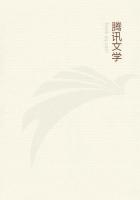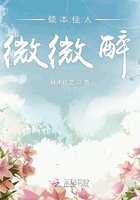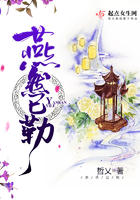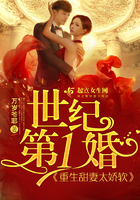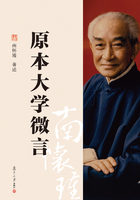Most of us, as boys, have envied the buccaneers. The greatest of all boys, Canon Kingsley, once wrote a pleasing and regretful poem in which the Last Buccaneer represents himself as a kind of picturesque philanthropist:-"There were forty craft in Aves that were both swift and stout, All furnished well with small arms, and cannons round about;And a thousand men in Aves made laws so fair and free, To choose their valiant captains and obey them loyally.
Thence we sailed against the Spaniard with his hoards of plate and gold, Which he wrung with cruel tortures from Indian folk of old;Likewise the merchant captains, with hearts as hard as stone, Who flog men and keel-haul them, and starve them to the bone."The buccaneer is "a gallant sailor," according to Kingsley's poem--a Robin Hood of the waters, who preys only on the wicked rich, or the cruel and Popish Spaniard, and the extortionate shipowner. For his own part, when he is not rescuing poor Indians, the buccaneer lives mainly "for climate and the affections":-"Oh, sweet it was in Aves to hear the landward breeze, A swing with good tobacco in a net between the trees, With a negro lass to fan you, while you listened to the roar Of the breakers on the reef outside that never touched the shore."This is delightfully idyllic, like the lives of the Tahitian shepherds in the Anti-Jacobin--the shepherds whose occupation was a sinecure, as there were no sheep in Tahiti.
Yet the vocation was not really so touchingly chivalrous as the poet would have us deem. One Joseph Esquemeling, himself a buccaneer, has written the history and described the exploits of his companions in plain prose, warning eager youths that "pieces-of-eight do not grow on every tree," as many raw recruits have believed. Mr.
Esquemeling's account of these matters may be purchased, with a great deal else that is instructive and entertaining, in "The History of the Buccaneers in America." My edition (of 1810) is a dumpy little book, in very small type, and quite a crowd of publishers took part in the venture. The older editions are difficult to procure if your pockets are not stuffed with pieces-of-eight. You do not often find even this volume, but "when found make a note of," and you have a reply to Canon Kingsley.
A charitable old Scotch lady, who heard our ghostly foe evil spoken of, remarked that, "If we were all as diligent and conscientious as the Devil, it would be better for us." Now, the buccaneers were certainly models of diligence and conscientiousness in their own industry, which was to torture people till they gave up their goods, and then to run them through the body, and spend the spoils over drink and dice. Except Dampier, who was a clever man, but a poor buccaneer (Mr. Clark Russell has written his life), they were the most hideously ruthless miscreants that ever disgraced the earth and the sea. But their courage and endurance were no less notable than their greed and cruelty, so that a moral can be squeezed even out of these abandoned miscreants. The soldiers and sailors who made their way within gunshot of Khartoum, overcoming thirst, hunger, heat, the desert, and the gallant children of the desert, did not fight, march, and suffer more bravely than the scoundrels who sacked Mairaibo and burned Panama. Their good qualities were no less astounding and exemplary than their almost incredible wickedness.
They did not lie about in hammocks much, listening to the landward wind among the woods--the true buccaneers. To tell the truth, most of them had no particular cause to love the human species. They were often Europeans who had been sold into slavery on the West Indian plantations, where they learned lessons of cruelty by suffering it. Thus Mr. Joseph Esquemeling, our historian, was beaten, tortured, and nearly starved to death in Tortuga, "so Idetermined, not knowing how to get any living, to enter into the order of the pirates or robbers of the sea." The poor Indians of the isles, much pitied by Kingsley's buccaneer, had a habit of sticking their prisoners all over with thorns, wrapped in oily cotton, whereto they then set fire. "These cruelties many Christians have seen while they lived among these barbarians." Mr.
Esquemeling was to see, and inflict, plenty of this kind of torment, which was not out of the way nor unusual. One planter alone had killed over a hundred of his servants--"the English did the same with theirs."A buccaneer voyage began in stealing a ship, collecting desperadoes, and torturing the local herdsmen till they gave up their masters'flocks, which were salted as provisions. Articles of service were then drawn up, on the principle "no prey, no pay." The spoils, when taken, were loyally divided as a rule, though Captain Morgan, of Wales, made no more scruple about robbing his crew than about barbecuing a Spanish priest. "They are very civil and charitable to each other, so that if any one wants what another has, with great willingness they give it to one another." In other matters they did not in the least resemble the early Christians. A fellow nick-named The Portuguese may be taken as our first example of their commendable qualities.
With a small ship of four guns he had taken a great one of twenty guns, with 70,000 pieces-of-eight . . . He himself, however, was presently captured by a larger vessel, and imprisoned on board.

